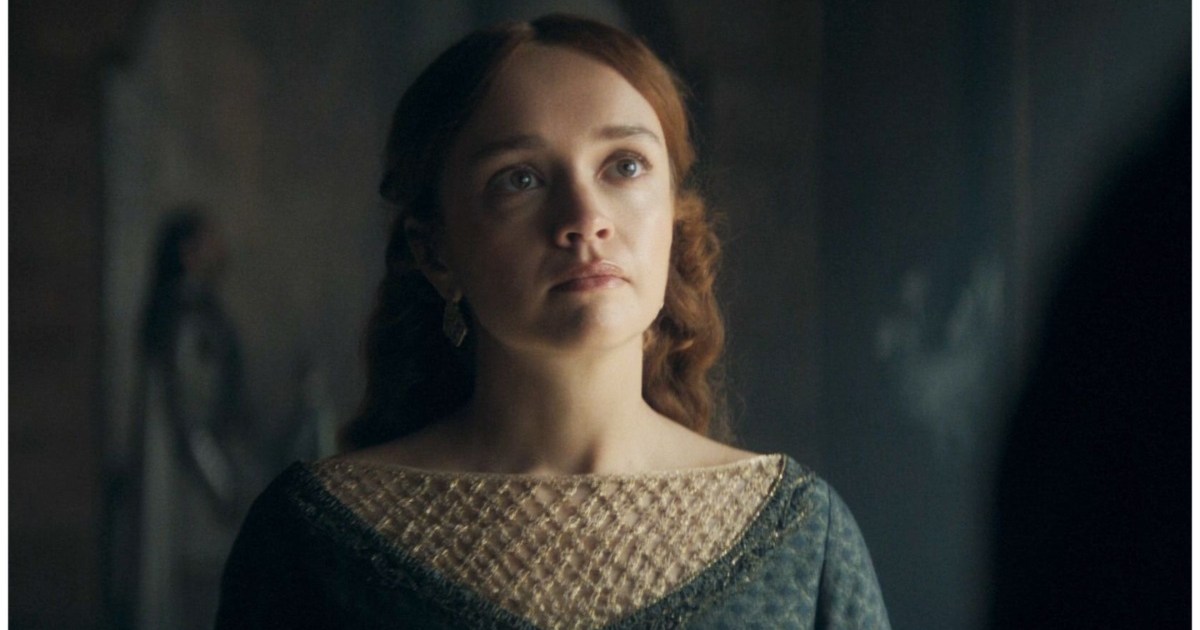Viewers want to know if Alicent realizes her mistake at the end of House of the Dragon Season 2 Episode 3. As the episode unfolds, the tension between the Blacks and Greens reaches a critical point, with Alicent’s actions potentially altering the course of events. The episode’s ending leaves fans questioning whether Alicent’s decisions will lead to reconciliation or further conflict.
Here is the House of the Dragon Season 2 Episode 3 ending explained featuring spoilers.
What happened at the end of House of the Dragon Season 2 Episode 3?
At the end of House of the Dragon Season 2 Episode 3, Alicent realizes her mistake about King Viserys’ final words but admits it’s too late to prevent war, while Daemon secures Harrenhal for Rhaenyra.
At the end of Episode 3, Alicent realizes her mistake regarding King Viserys’ final words. She realizes that Viserys referred to Aegon the Conqueror, not her son Aegon II, as the prince that was promised. Despite this revelation, Alicent acknowledges that it’s too late to prevent the war. Both sides have already sown the seeds of conflict and shed blood.
Throughout the episode, tensions between the Blacks and Greens escalate. Daemon secures Harrenhal for Rhaenyra, solidifying her strategic position in the Riverlands. Meanwhile, Alicent and Rhaenyra’s meeting ends without resolution, highlighting the deep divisions and mistrust between the two factions. As preparations for war intensify, the episode sets the stage for further escalation. The inevitable clash between the warring Targaryen factions looms.
Who is the prince that was promised from Aegon the Conqueror’s prophecy?
In House of the Dragon, a Targaryen prophecy identifies Aegon the Conqueror as the promised prince.
In House of the Dragon, King Viserys I Targaryen believes in a prophecy foretelling a savior who will unite the realm against a great threat. He confides in his daughter, Rhaenyra, that Aegon the Conqueror had a vision of this promised prince. However, Rhaenyra tells Alicent that Viserys referred to Aegon the Conqueror and not her son Aegon II, as the prince that was promised. This miscommunication sparks events that drive the series’ narrative and the ensuing war.
In George R.R. Martin’s book, A Song of Ice and Fire, the prophecy of the Prince That Was Promised is a major element, with criteria such as being born amidst salt and smoke and wielding a sword named Lightbringer. Game of Thrones briefly touches on this prophecy but leaves it unresolved, with Jon Snow and Daenerys Targaryen being potential candidates. However, the series diverges from the books, creating ambiguity about the prophecy’s true meaning and fulfillment.
The lore in both TV adaptations significantly features the prophecy of the Prince That Was Promised. While the original series left many questions unanswered, the prequel explores the prophecy further. It emphasizes its impact on the Targaryen lineage and the political dynamics of Westeros. As the story unfolds, the prophecy intrigues fans and shapes the characters’ destinies. It highlights the mystery and significance of Aegon the Conqueror’s vision.

